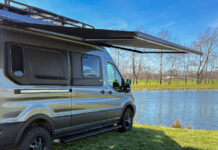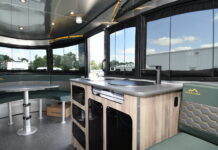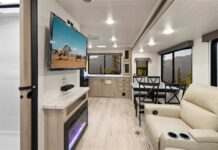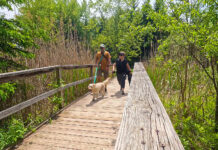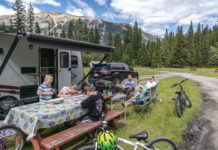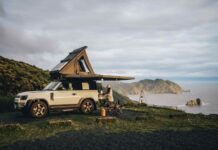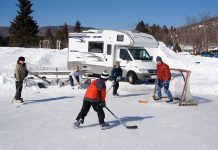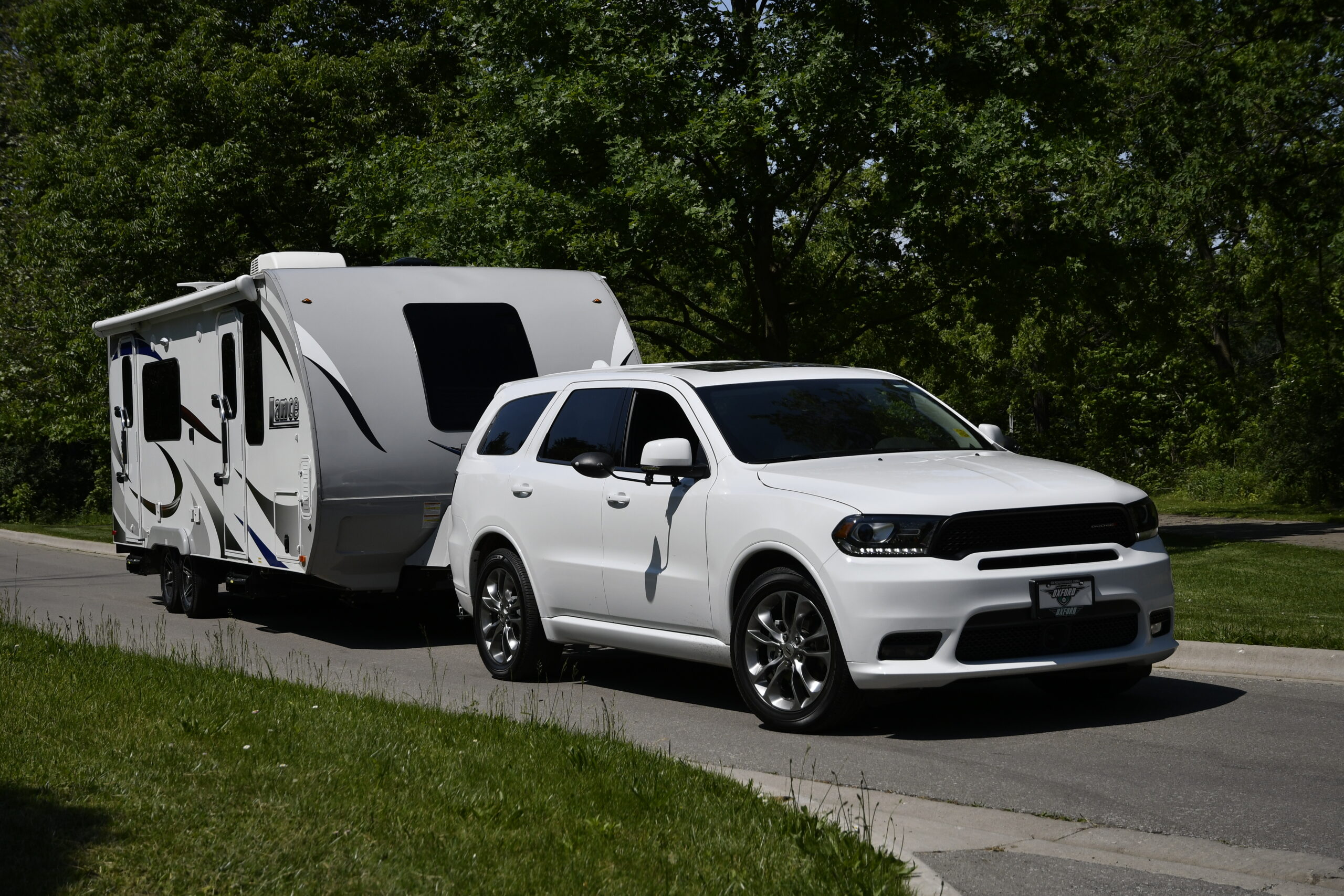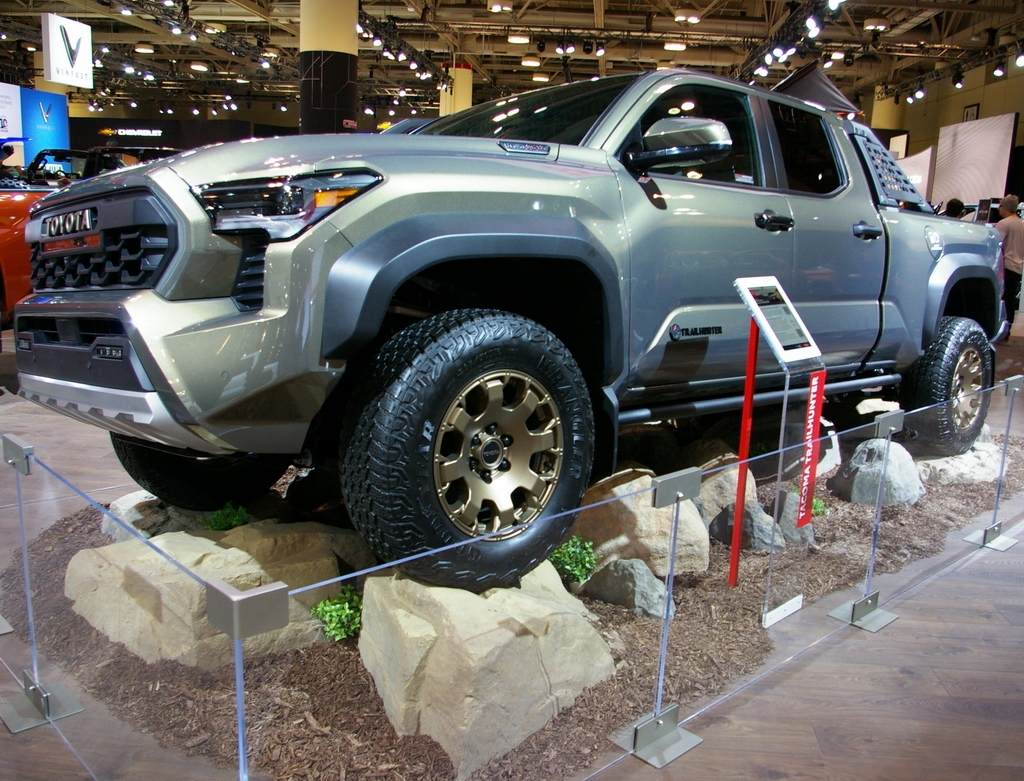RV Maintenance tips – that won’t leave you flat!
By Garth W. Cane
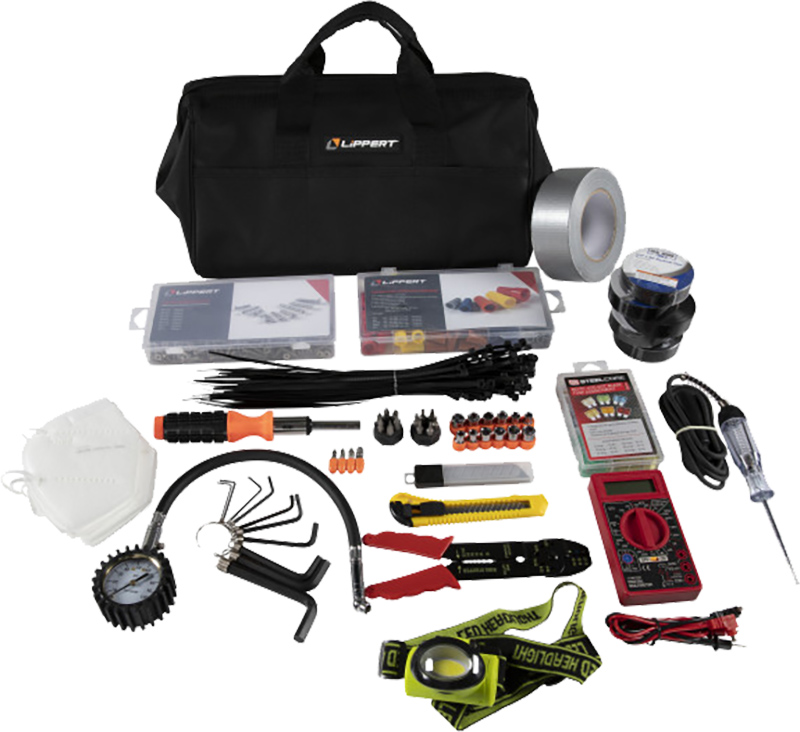
RV maintenance is an ongoing chore that is best practised daily. Most are not even chores, instead think of these jobs as preventative maintenance and make them part of your RVing routine. But not every job is obvious; the following items are often overlooked.
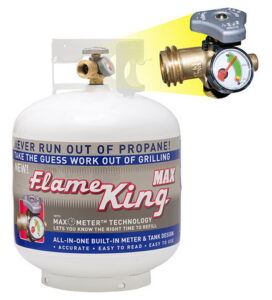
LP Gas System
Never let the attendant overfill your propane tanks or cylinders. These cylinders are designed to be filled to no more than 80% capacity. This allows the gas inside to expand in the warm sun. Cylinders are normally filled by weight and as soon as the arm of the scale dips, have the attendant shut off the supply. Many cylinders have a spit valve that indicates when the level inside the tank rises to the maximum permissible. New tanks have a built-in stop fill valve that prevents overfilling.
On a hot day an overfilled tank will vent excess gas. If this gas vents to the outside air, it could set up conditions for a fire. You may cool the tank or cylinder by pouring cold water over it until the venting stops. Then you should get rid of the excess gas by lighting an appliance that uses large quantities of fuel, such as your furnace or hot water heater.
Cylinders on the trailer tongue should always be covered to keep the heat of the sun off them. They are required to be painted a light colour that will reflect the sun’s heat.
Learn more about LP tanks and related products here: https://flameking.com/
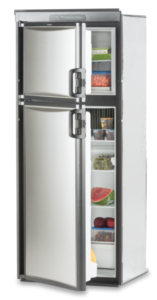
RV Refrigerators
When starting out on a trip your refrigerator should be run, to get it cold, before you place any food in it. This means the mechanism does not have to cool the unit and the food all at the same time. A good airflow over the tubes and pipes at the rear of the refrigerator is a must. Don’t store anything inside the service door that will impede the free flow of air.
Heat rising from the condenser tubes at the top of the unit exits through the roof vent. It is a good idea to look up inside this area to make sure this vent is clear. Birds have been known to build nests in this area. Sometimes the roof vent gets squashed when people are walking on the roof.
The refrigerator also depends on circulation of air inside to allow the cold air to drop to the bottom and force warmer air to rise to the finned cooling surfaces. Try not to stuff the refrigerator so full that the air cannot move.
If you must be parked off level for any period of time turn off the refrigerator. This will prevent the burner section from overheating and crystallizing the sodium chromate inside the pump tube. This tube can build up deposits just like plaque in your arteries. It builds up a little at a time and when it plugs up, you are facing the cost of replacing the whole cooling unit. An expensive lesson.
The 12V element in the refrigerator is only designed to maintain the cold inside the refrigerator; not cool it down. Your refrigerator will work best on either the 120V element or propane.
Check out this website for more about RV refrigerators: https://www.dometic.com/en-ca/outdoor/ca/products/food-and-beverage/refrigerators/rv-refrigerators
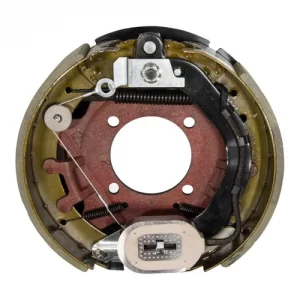
RV Brakes
If you have used your brakes quite a bit before stopping for the night (such as having just come down a hill or driving in traffic all day), they will probably be quite hot. As they cool down they attract moisture from the air. When this moisture sits on the metal surface it can cause a thin film of rust to form. This rust makes your brakes grab the first few times they are applied. To avoid this, start off through the campground and gently press the brake pedal or activate the brake controller as you drive along slowly. This will scrape the rust off the brake shoes or discs.
When travelling downhill, always use the same gear to descend that you would use if you were going up. On some hills, you may even need to be in first gear on the way down. Be sure that you are in the lower gear before you start down. This allows the vehicle transmission to slow your RV without using the service brakes.
If you must use your brakes on a long downhill section, don’t put your foot on the pedal and leave it there all the way down. Try braking a little harder and then let your foot off for a moment to allow the brake pads and discs to cool off. If they overheat, you will notice an unusual burning smell as they glaze over. With excessive glazing your brakes will not stop the vehicle.
See the range of RV brakes here: https://store.lci1.com/rv/stabilization-suspension/wheel-and-axle/brakes
Some people wonder if they need brakes for a lightweight trailer or a utility trailer – here’s a link to the current brake regulations across Canada: https://www.rvda.ca/content.asp?contentid=161
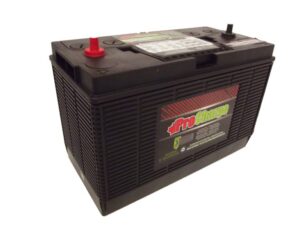
RV 12-Volt Batteries
Most battery problems in recreational vehicles stem from the fact that the battery surface becomes covered with a film of dust and the electrical current cannot flow through when there is dampness in the air. This will cause the battery to discharge when your unit is sitting in storage between uses.
Batteries should be charged as soon as possible after a discharge, or the cells can easily become sulfated. That means that the chemicals on the surfaces of the plates inside the battery become hard and make it almost impossible to recharge. A sulfated battery will only hold a surface charge that burns off very quickly.
If your unit is plugged into shore power while you spend six months in the sunny south, the trickle charger inside your converter may be boiling all the liquid out of the battery. The fluid needs to be replenished so that the plates are not exposed to air. While plugged in the battery could die from not getting the exercise that it needs. This usually doesn’t show up until you are on the road and find that your house battery goes dead soon after you turn off the engine.
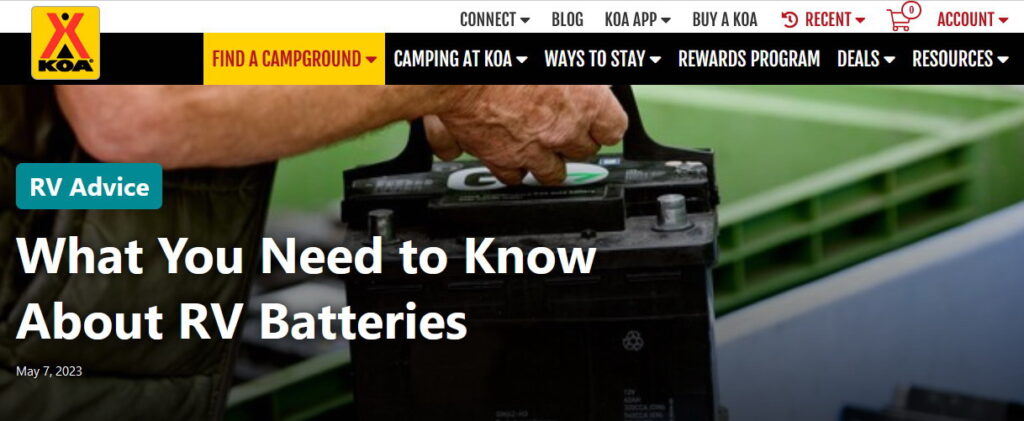
Our friends at KOA have an excellent article on RV batteries – follow this link to read the story: https://koa.com/blog/what-you-need-to-know-about-your-rv-batteries/
Check out the full array of Garth’s RV Tips columns – follow this link:






